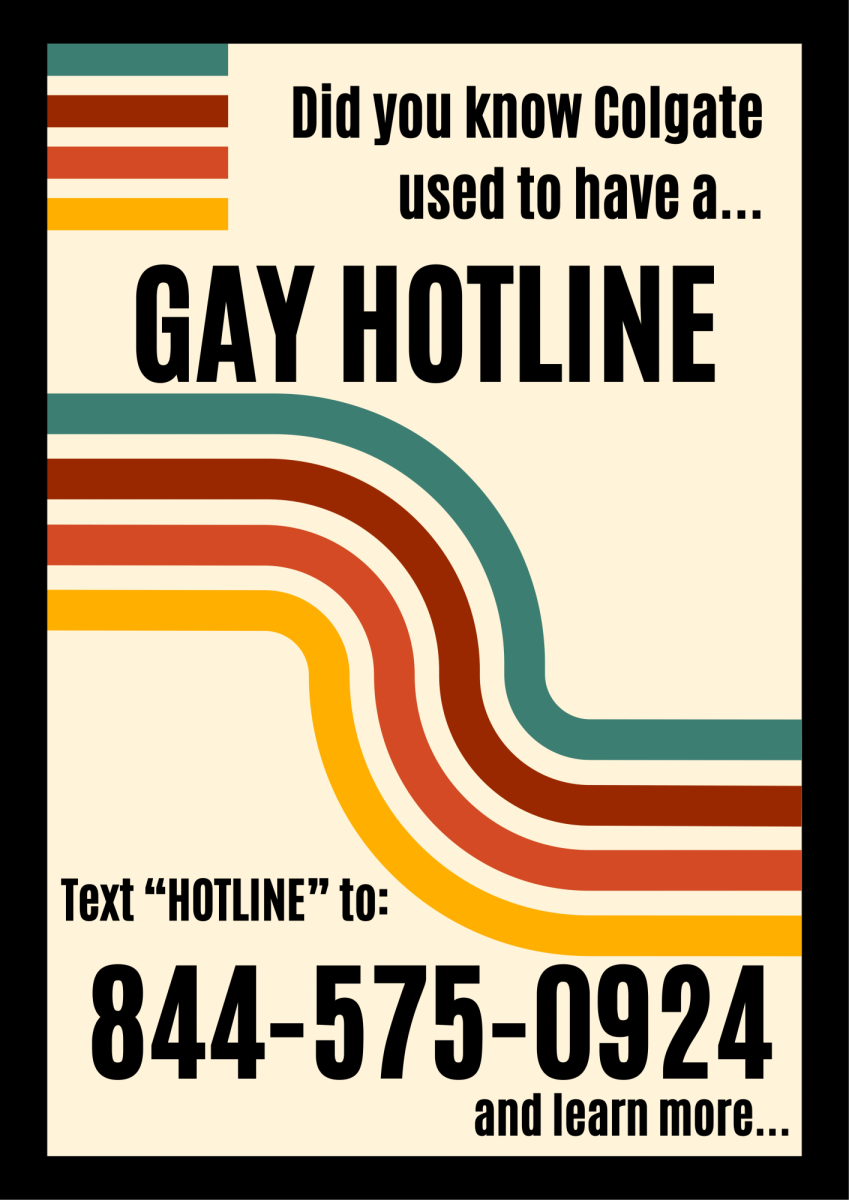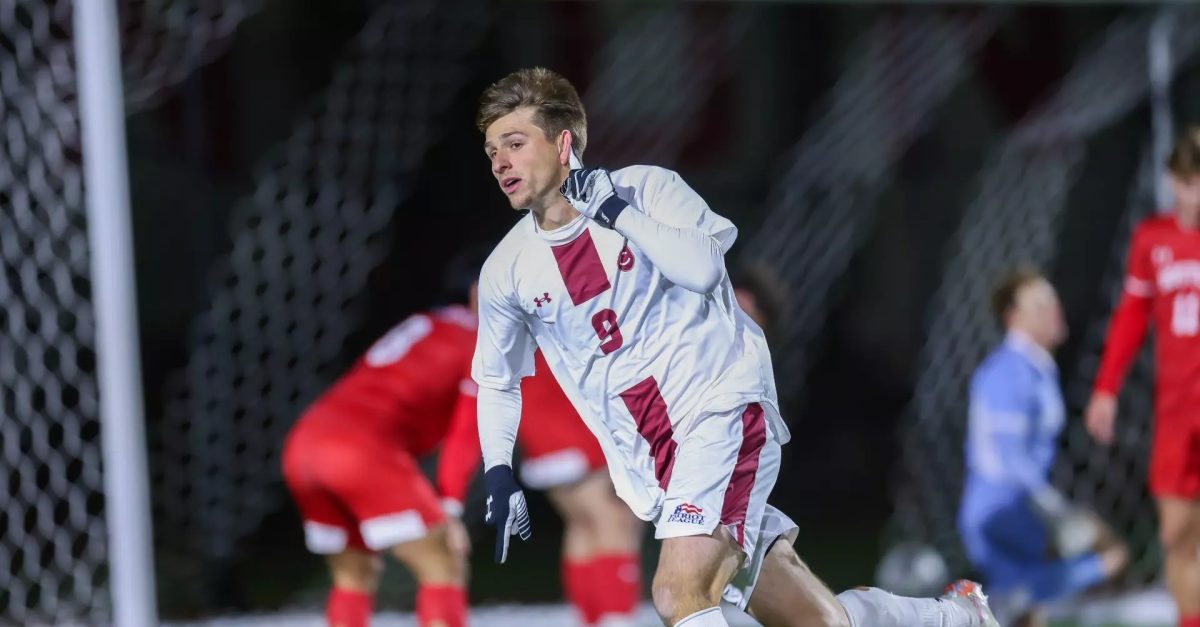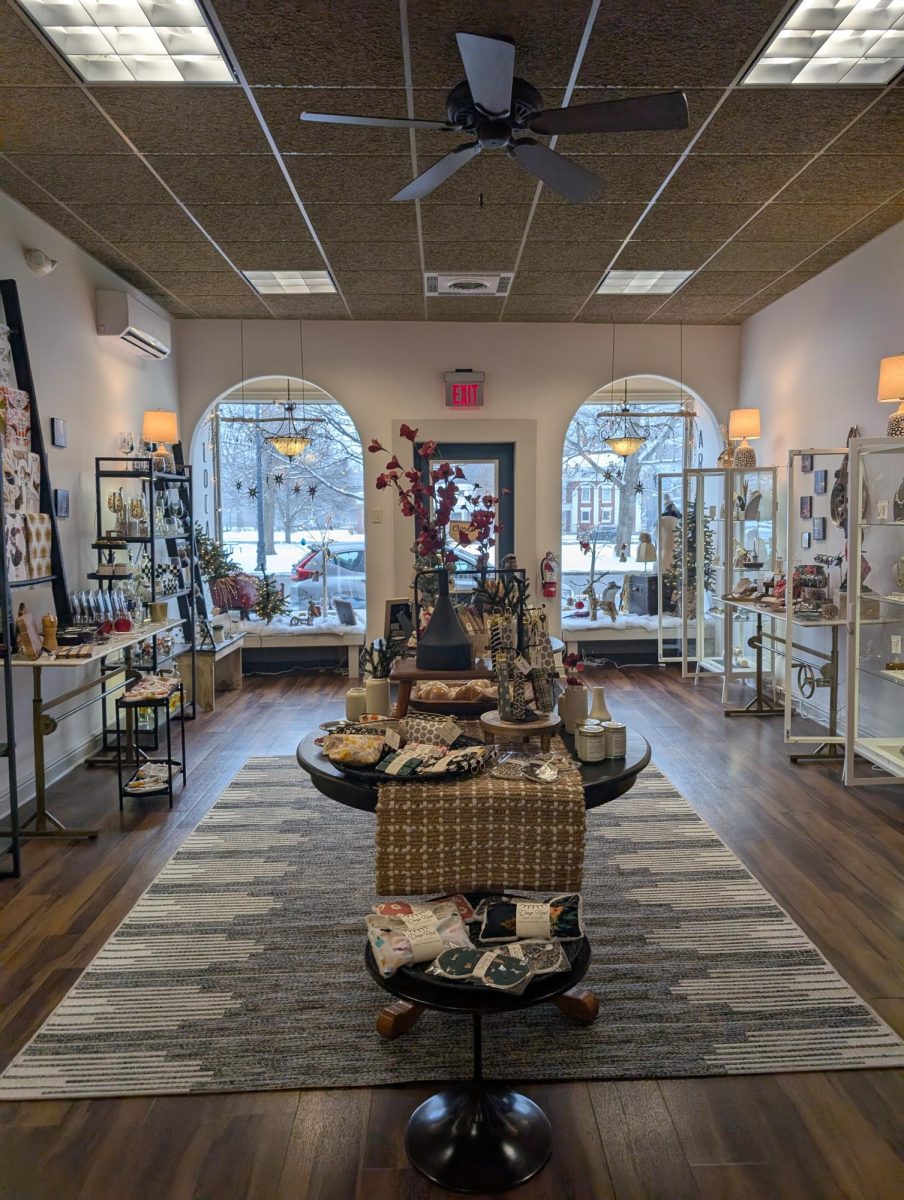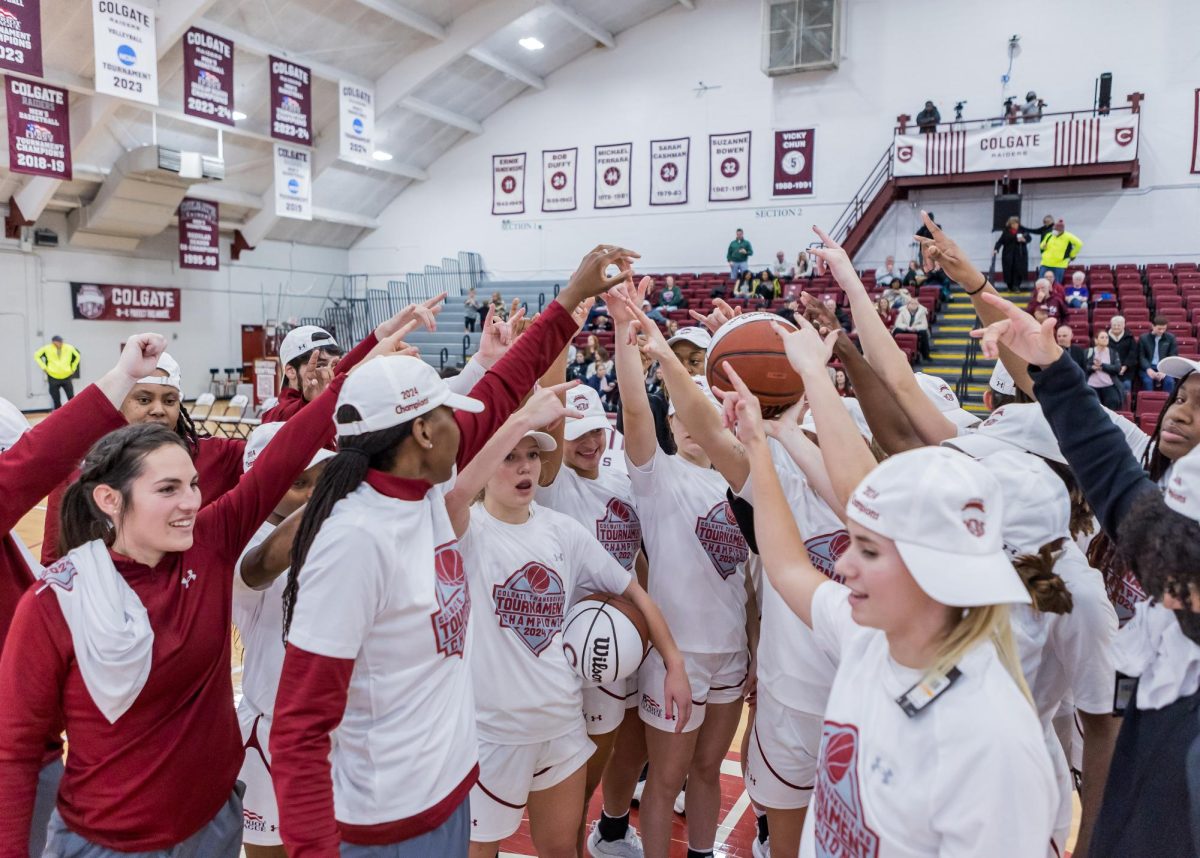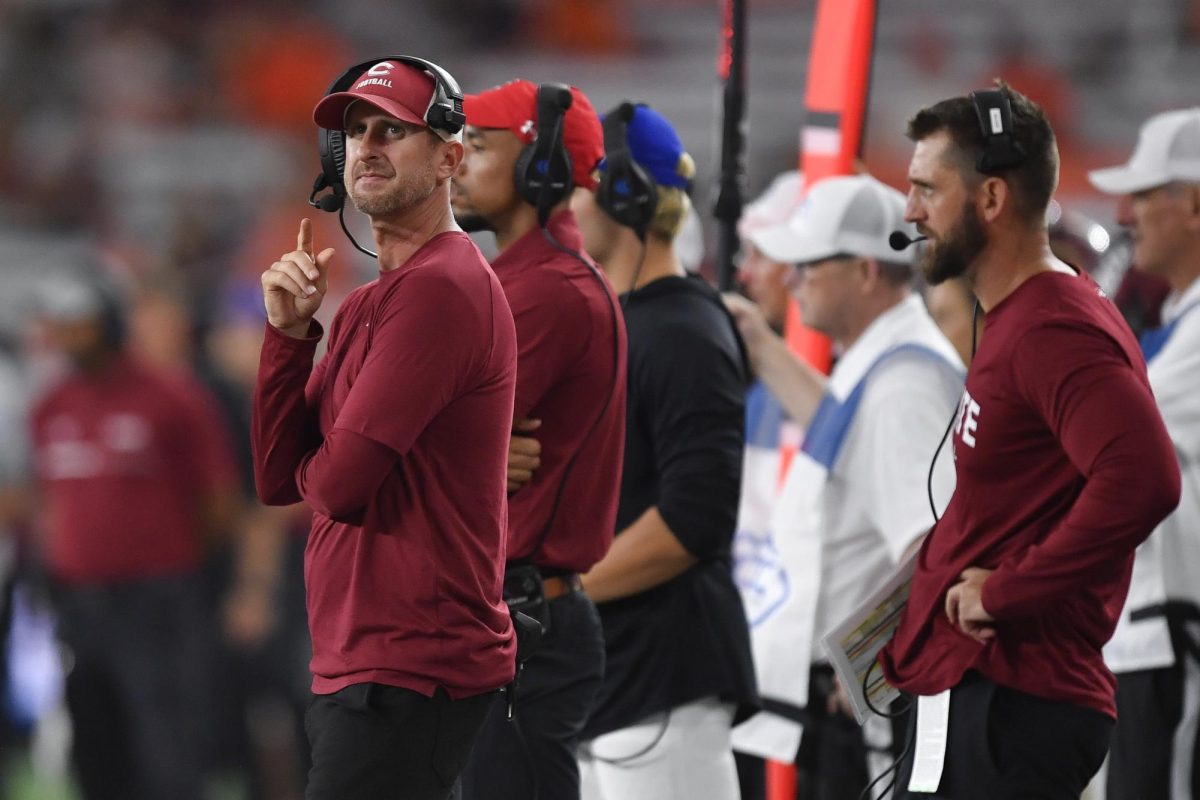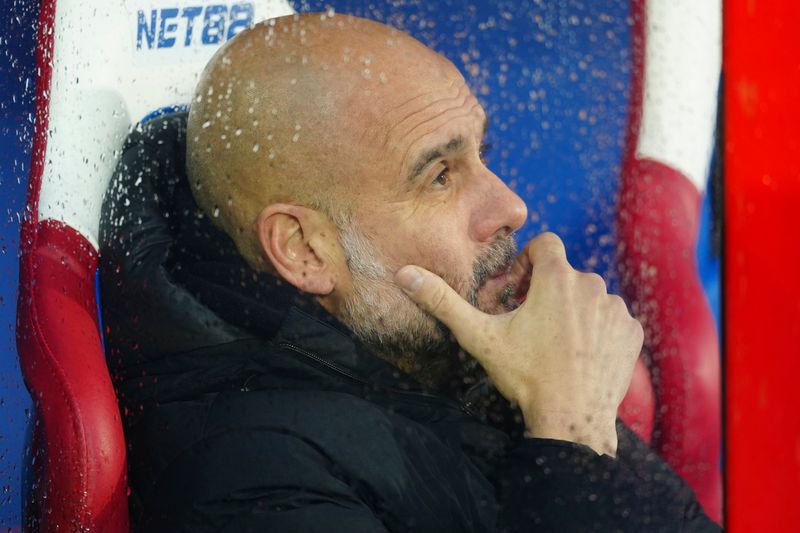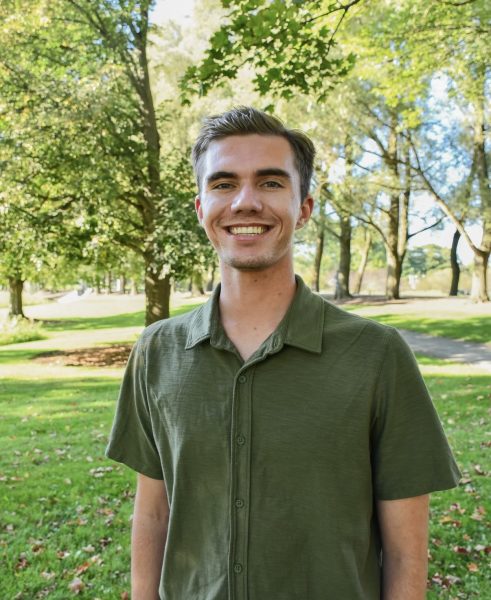Following an Oct. 31 announcement from New York Gov. Kathy Hochul that state police presence would increase on college campuses amid a “surge in hate and bias crimes,” Colgate University officials from various departments responded to and asked questions about the effects of the state’s mandate on Tuesday, Nov. 14. The discussion was organized by Campus Safety, the ALANA Cultural Center, the Office of Diversity and Equity and LGBTQ Initiatives.
Director for Diversity and Equity Amari Simpson opened the discussion — which mostly drew University administrators — by emphasizing its purpose and goals.
“We wanted to — in the Office of Equity and Diversity — gather folks to have a conversation based on some knowledge of increased [police] presence on campus and to provide the opportunity [to understand] what this process looks like, what campus authority is and how increased presence may affect our collective community,” Simpson said.
Given their involvement in the process, Director of Campus Safety Terri Stewart and Associate Vice President for Emergency Management, Campus Safety and Environmental Health and Safety Joe Hernon answered most of the questions during the discussion on behalf of Campus Safety.
Somewhat disproving the title of the event (“Discussing Increased Police Presence on Campus”), Stewart said that there hasn’t actually been any notable, increased presence of state police at Colgate in the weeks following Hochul’s announcement. Campus Safety has simply continued the standard check-ins that the University has routinely conducted with higher-up agencies — a custom that has been in place for years, even before Stewart’s time as director.
“The frequency has been [about] once a week,” Stewart said. “We’re mostly sharing information.”
Stewart added that communication between Campus Safety and law enforcement — including local, county and state agencies — has mainly been to familiarize outside groups with Colgate personnel and specifics about the University, such as building names or existing plans in place to respond to threats. When state police have visited Colgate thus far, they have come in normal clothes, parked at the Campus Safety building and walked alongside Campus Safety officers.
“Understanding the culture, I think, predates any of the governor’s [announcement], because mostly what we do is build partnerships,” Stewart said. “I’m not certain that folks would have probably noticed anything different as far as an increased presence on campus.”
“If there was an event, like an active shooter, our Campus Safety officer team isn’t equipped to respond to that because they don’t have […] anything that would be appropriate to responding to that event,” Hernon added. “In that event, we would have to rely on other partners, so having them know where to go is helpful. But, as it’s been, they don’t come on campus without letting us know — a professional courtesy — and they don’t really go anywhere without us, either. So, at this point, I wouldn’t imagine you’d see them just wandering around alone — unless they were walking from the parking lot down to Campus Safety.”
To reassure students who may feel discomforted by the idea of increased police presence, Stewart noted that state police have always shown an interest in educating themselves about the University, its demographics and its culture. Hernon added that, because Campus Safety is a more active participant within the Colgate community, state police typically allow them to maintain their normal jurisdiction over campus and only intervene when deemed absolutely necessary.
“I think they also do rely on us as Campus Safety a lot to be the first point of contact if they don’t have to,” Hernon said. “They’d rather the student — or party or whoever — sees a familiar face or a familiar uniform. So I do think that tends to be — emergency scenarios aside — their approach, more often than not.”
“Unless there is an imminent threat to life or property, they will defer to us,” Stewart added. “They’ll monitor, but they will definitely take our lead. If we had a building takeover or a protest inside of a building, they [wouldn’t] come busting it. It’s mostly, like, ‘What is your plan? What is your strategy?’”
Speaking from her own experience with Campus Safety during the discussion, Director of Disability Services Evelyn Lester wanted to give the office credit for the work they’ve done to connect with students through frequent, community-building events.
“Training is helpful, but when you have an implicit bias, that’s really hard to train out of someone,” Lester said. “I think that something they’re not giving themselves credit for — that is unique here — is [that] they do preventative things to connect with students. […] It makes [Campus Safety] so much less intimidating, so that if you have to call, or if you are approached, […] it is helpful.”
Senior Ophelia Palaguachi saw a poster in Wynn Hall and decided to attend the discussion because it had somewhat of an attention-grabbing theme.
“I was surprised because I hadn’t noticed any police presence, and when I asked my friend, he wasn’t aware of any either,” Palaguachi said.
After having listened to the administrators, Palaguachi felt more convinced that Campus Safety puts a respectable amount of effort into collaborating with students, campus organizations and state police.
“I felt reassured when I heard that whenever police come to Colgate, they tip off Campus Safety first, and then they are escorted by Campus Safety around the campus,” Palaguachi added.
Stewart and Hernon urged students to reach out to Campus Safety if they have any further questions or concerns.


